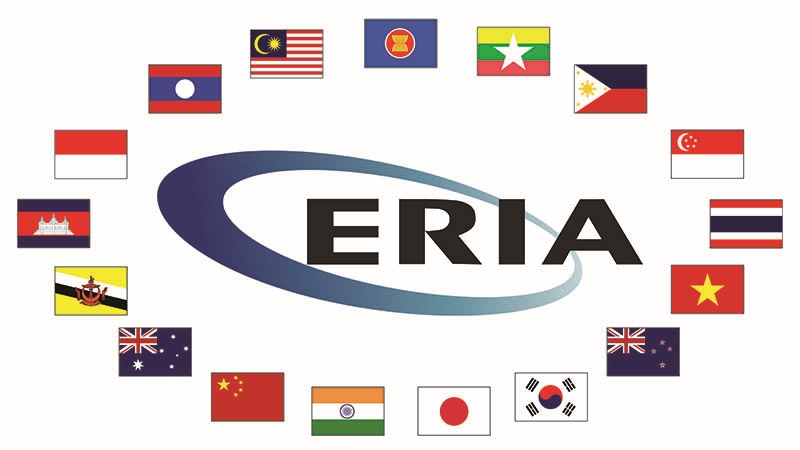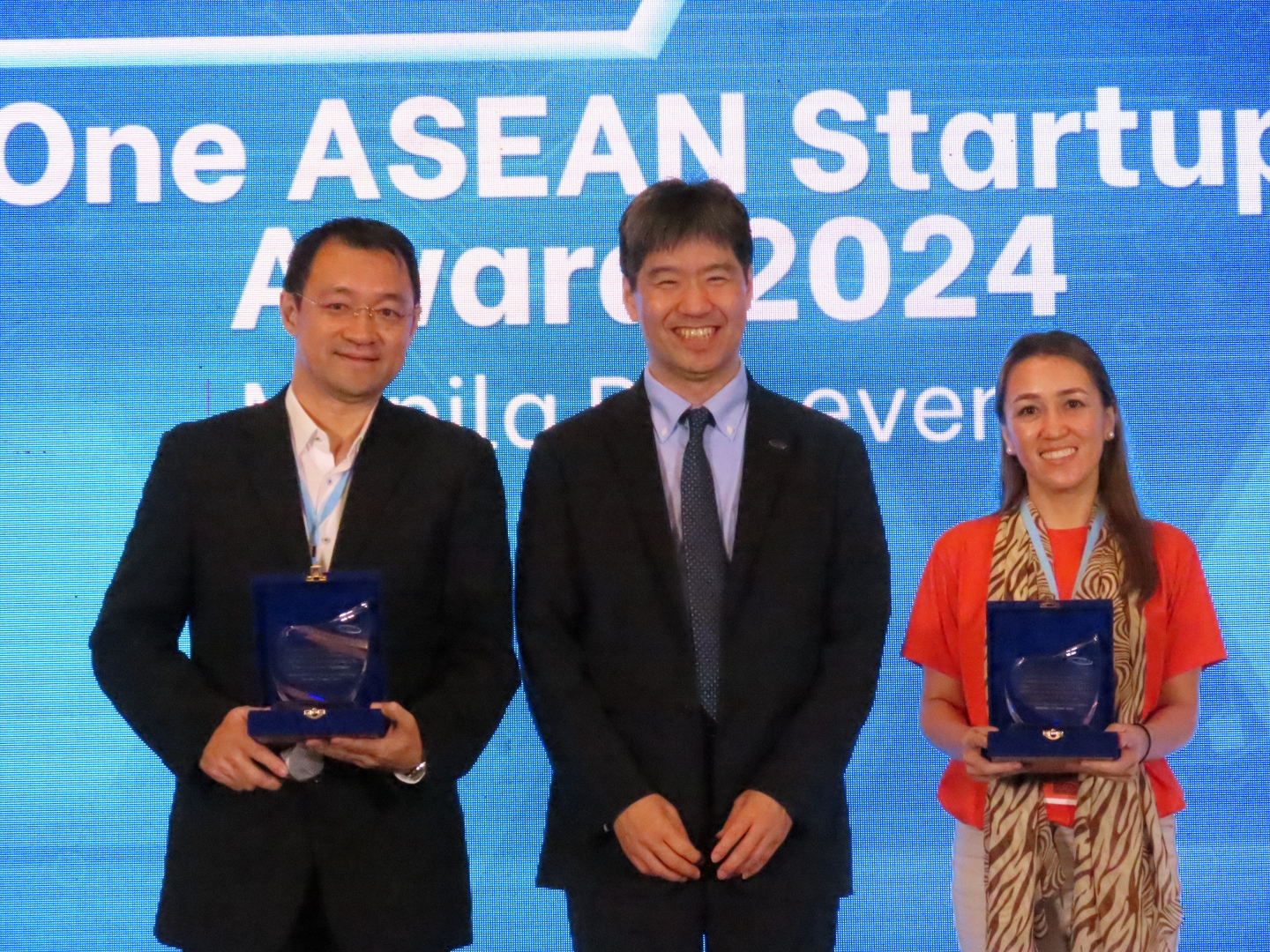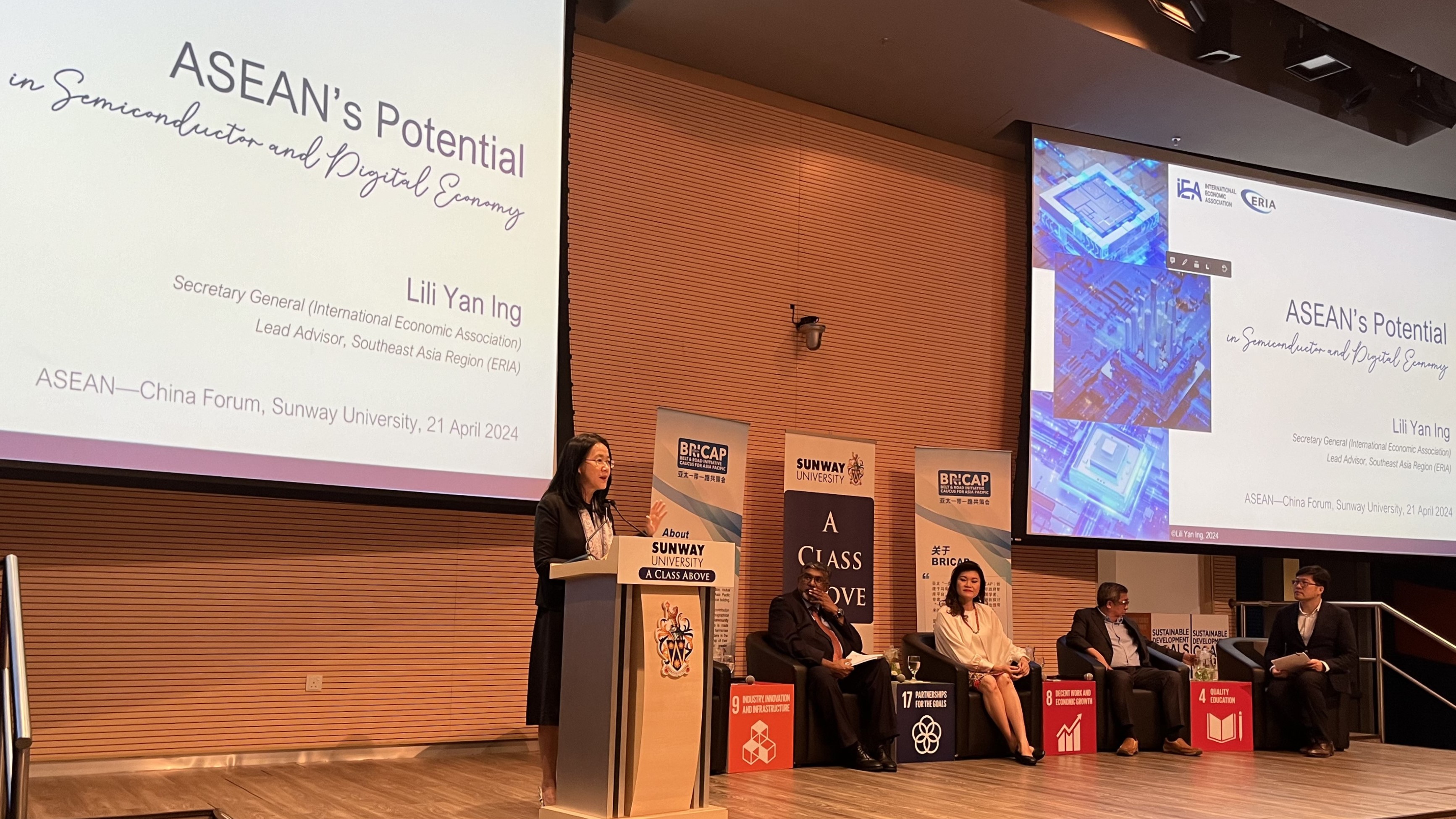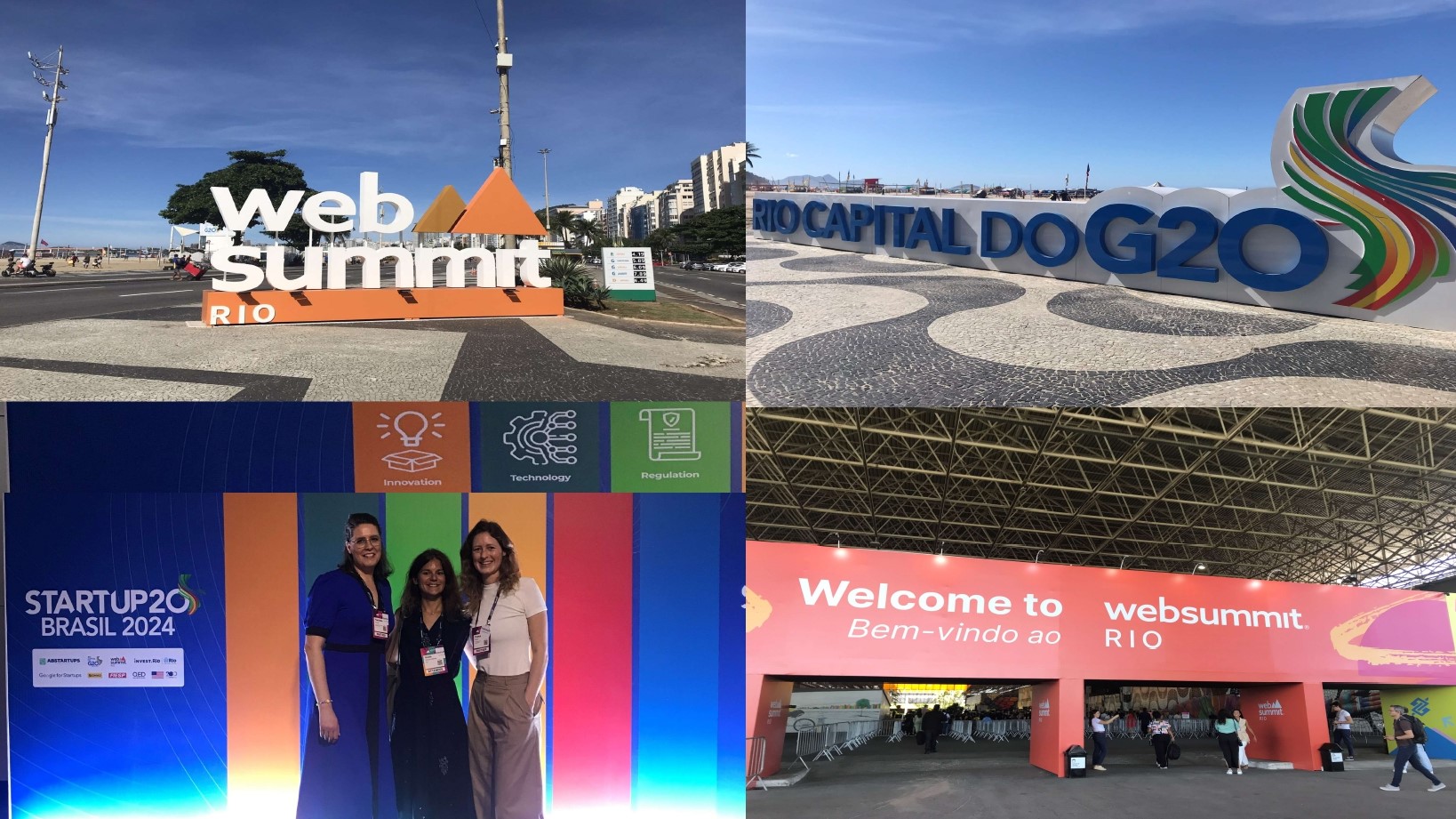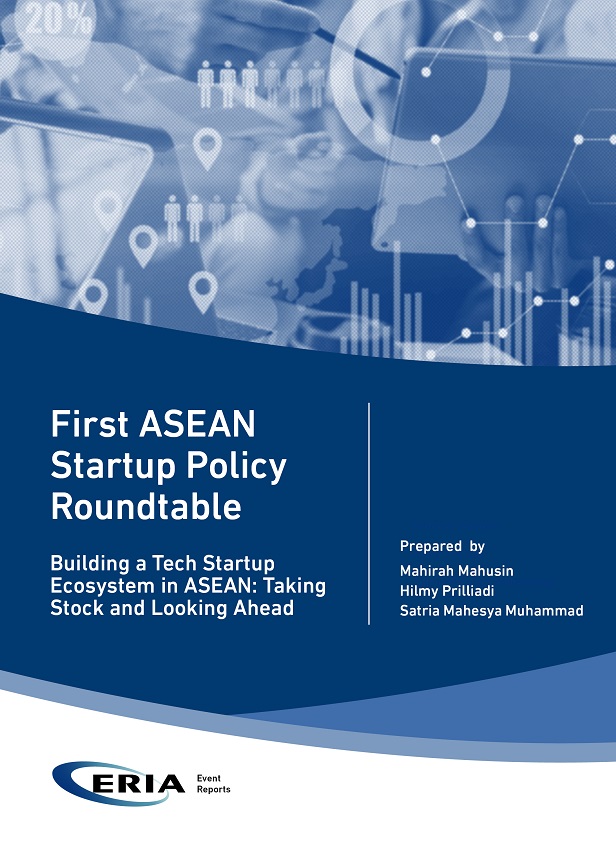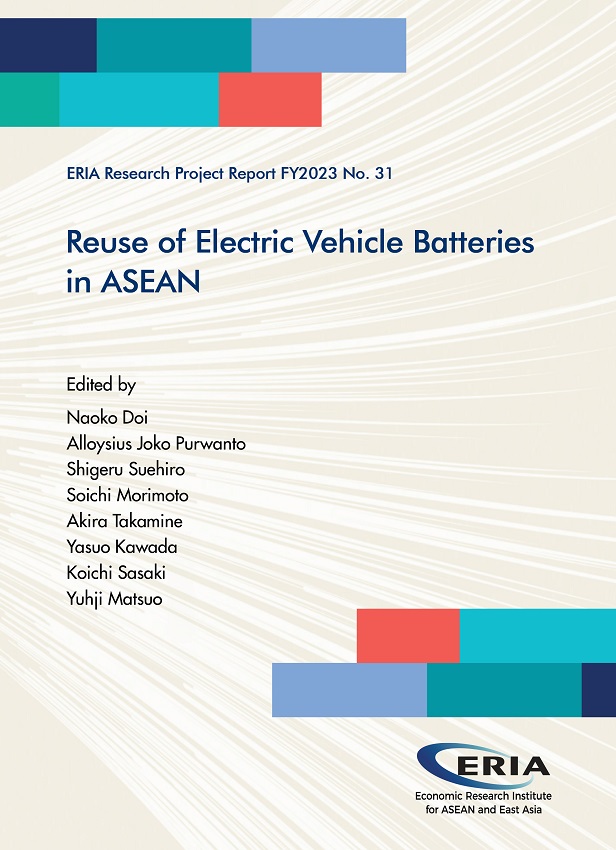Invitation for Proposals for ERIA FY2013-14 Study
Date:
25 October 2013Category:
NewsTopics:
-Share Article:
Print Article:
Invitation for Proposals for ERIA FY2013-14 Study
"Energy Market Integration in East Asia - Focus on impacts by energy pricing reform, subsidies, liberalizations and regional trade & FTA on energy products & services"
October 2013
Background
The Economic Research Institute for ASEAN and East Asia (ERIA) is inviting research proposals for studies related to Energy Market Integration (EMI) in the East Asia region.
ERIA is an international organization established by the 16 member countries of the East Asia Summit (EAS). It is expected to contribute intellectually to the regional efforts for ASEAN Community building and East Asia economic integration. Its role is to provide policy analyses and recommendations to Leaders and Ministers at regional meetings such as the ASEAN Economic Ministers Meeting, EAS Energy Ministers Meeting (EMM), ASEAN Summit, and the EAS.
Under the East Asia Summit Energy Cooperation Taskforce (EAS ECTF) , ERIA is studying three workstreams on energy to address the EAS Leaders and Ministers' concerns on energy cooperation and the regional energy market. These workstreams are energy efficiency and conservation, energy market integration, and bio-fuels for transport and other purposes. ERIA's past Energy Market Integration studies have been well received by policy makers and EAS energy ministers. In the fifth EAS Energy Ministers Meeting (EMM5, Brunei, 2011):
The Ministers reaffirmed the importance of establishing efficient, transparent, reliable, competitive and flexible energy markets as a means to provide affordable, secure and clean energy supplies for the region. Towards this end, the Ministers welcomed the Energy Market Integration Work Plan 2012, which aims to address impediments to the efficient functioning of markets by focusing on activities to (i) enhance energy infrastructure and (ii) facilitate greater energy trade and investment across the region. The Ministers also noted the outcomes of ERIA's report on Energy Market Integration, which highlighted the need to further strengthen and expedite market integration efforts, given factors such as the Asian premium oil prices, the need for competitive energy markets and pricing, and the benefits of energy access for economic growth.
At the EMM6 (Phnom Penh, 2012):
The Ministers expressed appreciation to ERIA for its contribution to the work of the Energy Market Integration Work Stream by conducting the Study on "Energy Market Integration (EMI) in East Asia: Theories, Electricity Sector and Subsidies". The Ministers tasked the Senior Officials to consider the recommendations of the Study for possible practical adoption.
At the EMM7 (Bali, 2013):
The Ministers noted the ERIA Research Study Project on "Energy Market Integration (EMI) in East Asia", the focus of which in 2012-2013 was the integration of renewable energy into the power transmission grid. As the sideline event of Energy Ministers Meeting, the results of the "Energy Market Integration in East Asia: Renewable Energy and Its Deployment into the Power System" was presented at the ASEAN Energy Business Forum.
Potential issues for EMI study
Since the inception in 2005 of the East Asia Energy Cooperation Task Force (EAS ECTF) Work Stream on Energy Market Integration, the research has been actively promoted by East Asia Governments to better understand matters impacting on energy trade liberalization and investment, energy infrastructure, pricing reform and deregulation of domestic energy markets.
Shi and Kimura (2010) provide a nice summary on past and current efforts made to foster energy market cooperation (see, table 1). EMI in East Asia was conducted by the following three components: (a) a series of ASEAN Plans of Action for Energy Cooperation (APAEC) which aims to highlight the importance to construct a reliable, transparent, and cooperative energy market; (b) the ASEAN Economic Community (AEC) blueprint emphasizes the establishment of interconnecting arrangements through regional cooperation in Trans-ASEAN Energy Networks comprising the Trans-ASEAN Gas Pipeline (TAGP) and the ASEAN Power Grid (APG) (APAEC, 1999); and (c) financial support for energy market cooperation.
Table 1. Overview of EMI current status in Shi and Kimura's study (2010)
Source:
Shi and Kimura (2010).
The theme of the EMI study was selected each year around the framework outlined by Shi & Kimura (2010). Past EMI studies focused on the review on the regional commitment of EAS countries, the benefits from EMI, the electricity market, theories, subsidies, and deployment of renewable energy into power grid system.
To give emphasis for EMI study in this Fiscal Year 2013-2014, the theme has been chosen around the framework of the EMI, but it is extended further to accommodate a proposal from Singapore who want to know the free flow of energy goods and services in ASEAN. In this regard, the theme of EMI this year is on "Energy Market Integration in East Asia - Focus on impacts by energy pricing reform, subsidies, liberalizations and regional trade & FTA on energy products & services"
ERIA Energy Unit therefore would like to invite for proposals that address issues of the above chosen theme.
Below are lists of sample themes around EMI framework laid by Shi & Kimura (2010), and additional themes as proposed by Energy Market Authority, Singapore who leads the EMI workstream:
1. Economic impacts of energy pricing, taxes and subsidies on various sectors of the economies. Theoretically, the concept of pricing, taxes and subsidies will affect consumers and well as producers.
2. National and regional experiences in promoting liberalizations on energy products and services: trade liberalization and facilitation; investment liberalization facilitation; and domestic market liberalization (integration).
3. Issues related to trans-boundary energy infrastructure and trade, such as governance of trans-boundary power grids and gas pipelines; fiscal policy on transmission for regional electricity and gas trade; dispute settlement mechanisms; harmonization of energy specifications such as liquid biofuels and gas and other energy products for regional trade facilitation.
4. Case studies in the electricity and gas sectors, including regulatory reform and improvement of competition.
5. Case studies of the Greater Mekong Sub-region (GMS - a pioneer of regional integration) in power trade and hydroelectricity development.
6. The vision of ASEAN Economic Community (AEC) 2015 is to transform ASEAN into a single market, production base and fully integrated region. Given this vision, a possible areas that could be enhanced is the free flow of energy goods/products and services that would contribute to the realization of integrated ASEAN & EAS energy market. As such the objective is to stock taking the current trade flows for energy goods/products and services identify barriers and propose recommendation to mitigate those barriers. The paper may also involve the review of the current FTA and related Trade Agreements that could lead to policy recommendations for the promotion of free flows of goods and services of energy products in the regions and thus the deployment of the energy saving appliances, devices and other technologies such as solar PV and clean coal technologies.
These themes are illustrative and proposals on other topics will be given equal consideration.
The proposal will include at least the following parts:
- Research question (s);
- Background and value added to the literature;
- Data and methodology (analytical framework)
- Expected policy implications. ERIA studies are policy orientated and it is essential that the study delivers policy implications for EAS EMI.
We prefer at least one researcher in the team to be from the EAS region. Together with the proposal, the lead researcher will submit a brief CV with a list of publications (if the researcher has not been a member of ERIA's EMI Working Group in the past) and a sample paper, preferable in a journal article style.
Timeframe and administrative issues
To be fully considered, proposals should be submitted to Han Phoumin ([email protected]) no later than 30 November, 2013. Early submission is encouraged. The authors will be notified of the proposal selection by 30 December 2012 at the latest.
The leading researchers of the accepted proposals will form a Working Group (WG). The WG is expected to meet twice during the study period. Working Group members have the obligation to attend the WG meetings, and to participate in the discussions and provide review, comments and discussions on other members' work.
ERIA will fund not less than USD 8,000 for each proposed study. Costs for attending WG meetings and seminars, including travelling costs and daily per diem, will also be provided by ERIA (one author per paper).
All studies are to be finalized by mid July 2014. This deadline is firm to make it possible to report the results to the ECTF and EMM7. The tentative timeframe is:
Table 1. Tentative Timeframe

